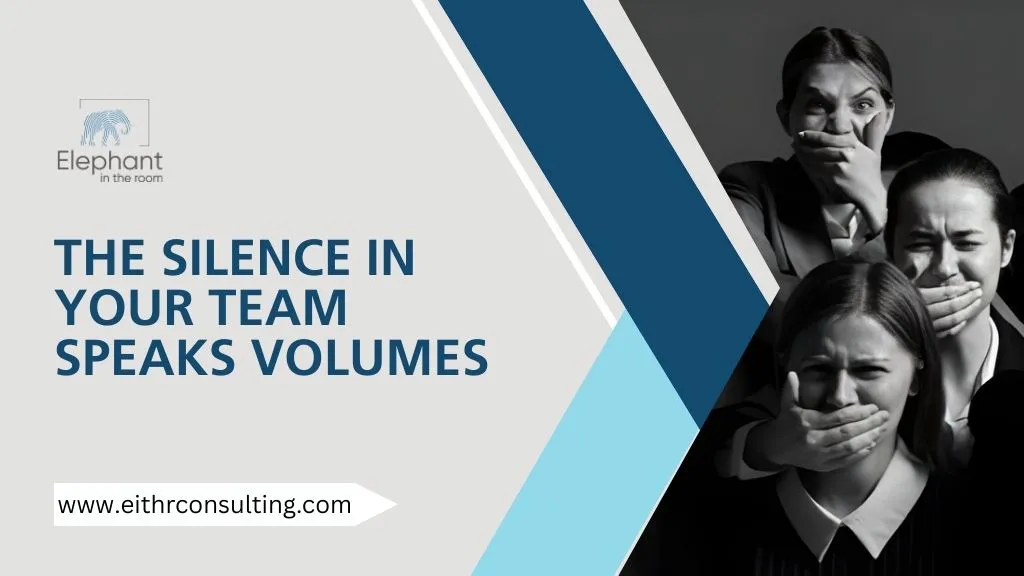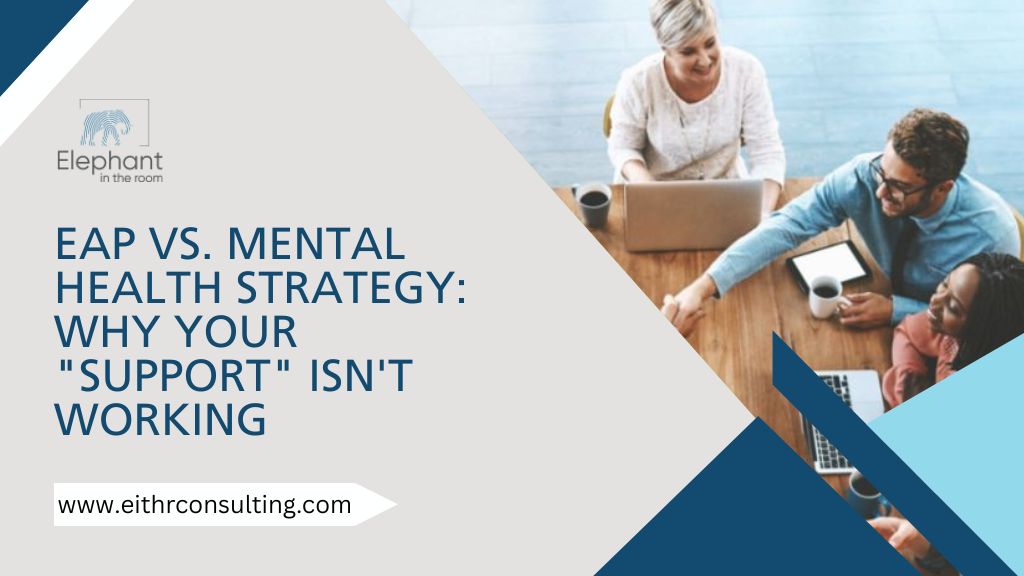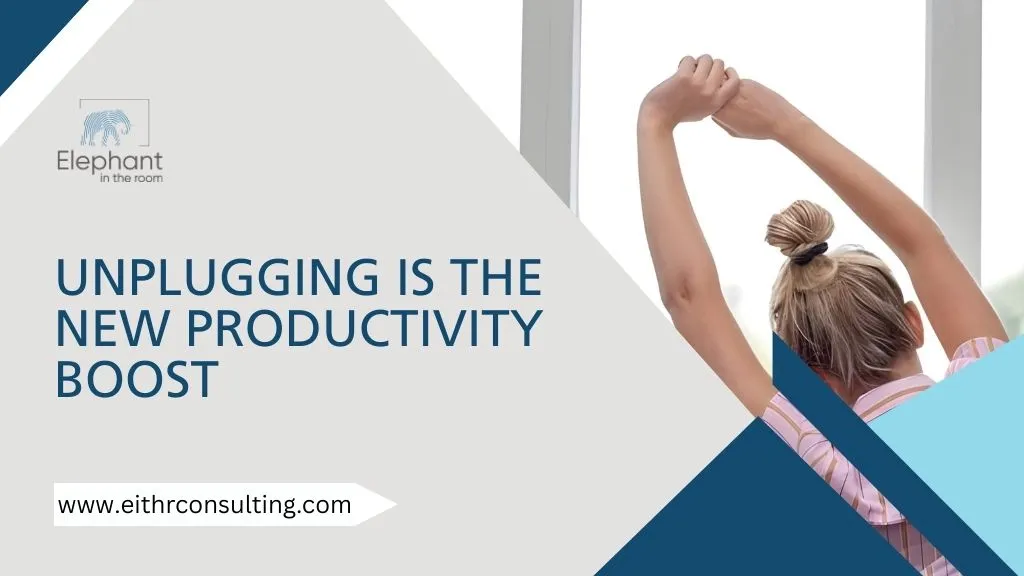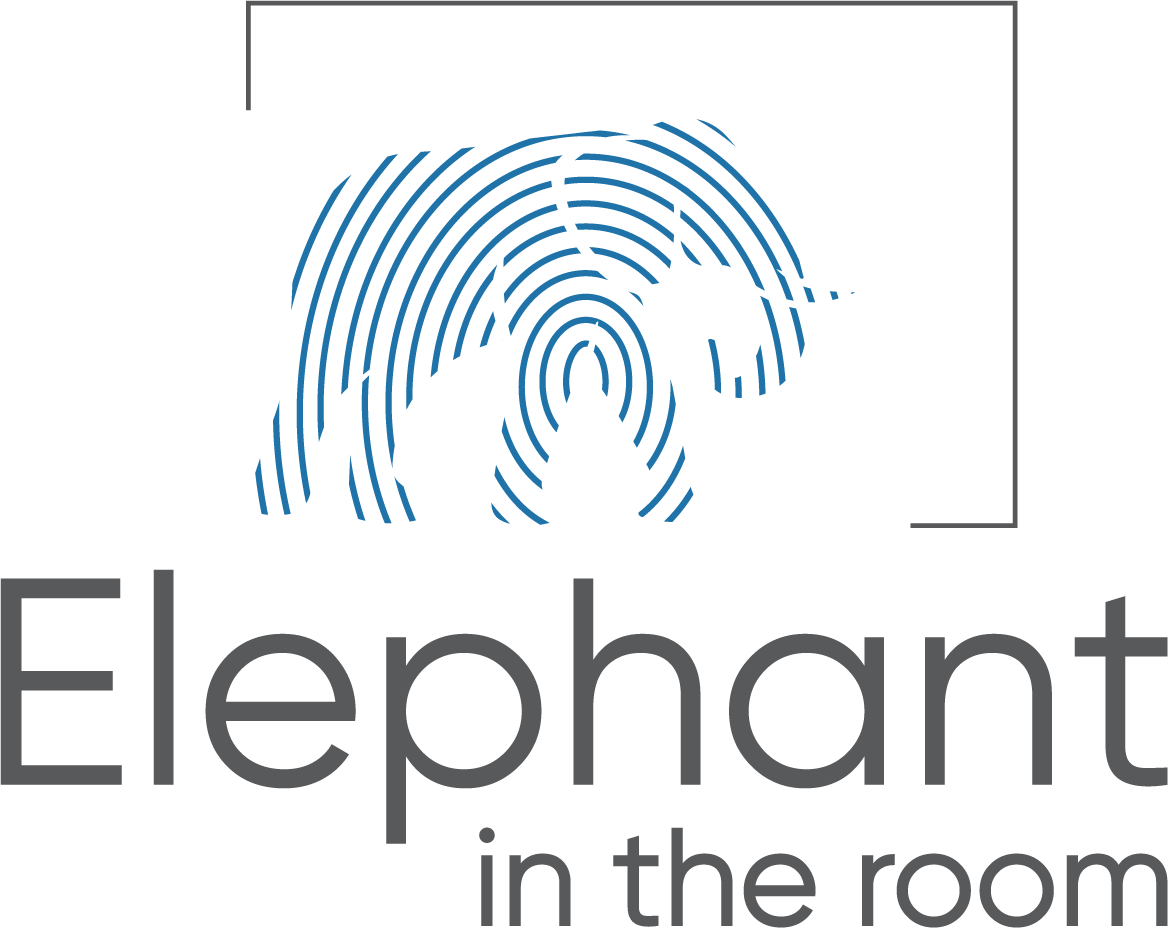A Proven Leadership Guide to Building Real Team Rapport

Why do high-performing teams still struggle with trust and alignment, even under experienced leadership? As a senior leader, you may see capable managers, strong targets, and structured processes, yet conversations feel guarded, and collaboration lacks depth. Real team rapport is not built through occasional team-building sessions. It grows from deliberate application of leadership skills daily, especially under pressure. KEY TAKEAWAYS What Does Real Team Rapport Actually Look Like? Rapport is often mistaken for friendliness or comfort. In reality, it is operational trust. It shows up in how your team behaves when deadlines tighten, when targets slip, or when difficult feedback must be delivered. You can recognise real rapport when: You do not need emotional bonding to build rapport. You need reliability. Why Do High-Performing Teams Still Struggle With Rapport? High performance can mask relational strain. A team may hit targets while privately avoiding difficult conversations. Deadlines are met, but collaboration feels transactional rather than collaborative. Over time, this creates silent inefficiencies. Decisions take longer because dissent is not expressed openly. High performers disengage emotionally even if output remains stable. Rapport is not tested in comfort. It is tested in disagreement. Consider asking yourself: Are people honest in meetings, or simply polite? If most discussions move quickly to agreement and real concerns surface later in smaller groups, politeness may be replacing honesty. Real rapport allows respectful challenge in the room, not after it. ➡️Read More: The Anatomy of a High-Performance “Great” Work Culture: What It Actually Looks Like Why Do Many Team Building Efforts Lose Momentum? Organisations invest in team-building workshops hoping to strengthen relationships. The energy after such events is often positive. However, without consistent reinforcement from leadership, that energy fades quickly. Consider this scenario – Your team attends an off-site focused on collaboration. Everyone agrees to improve communication. A week later, during a review meeting, a leader publicly dismisses a suggestion without explanation. The message becomes clear: openness carries risk. The issue is not the activity. It is the behaviour that follows. Event-Based vs Behaviour-Based Rapport Event-Based Team Building Behaviour-Based Leadership Occasional off-sites Daily clarity and consistency Emotional bonding Structured accountability Short-term morale boost Long-term trust External facilitation Internal discipline Rapport built on events cannot survive pressure. Rapport built on behaviour can. How Do Leadership Skills Influence Everyday Rapport? Your leadership skills shape how your team interprets ordinary moments. When a deadline is missed, your response sets a pattern. If you react sharply, people become cautious. If you ask what obstacles emerged and clarify next steps calmly, accountability improves without damaging trust. Similarly, when strategy shifts, do you provide context or just announce the decision? Context reduces speculation. Transparency strengthens alignment. Over time, consistent responses build predictability. Predictability builds rapport. What Are the Early Signs Rapport Is Weak? Weak rapport rarely appears as open conflict. It appears as hesitation. You may notice: Signs to Watch Observable Behaviour Likely Cause Limited idea-sharing Fear of negative reaction Side conversations Unspoken disagreement Defensive responses Low psychological safety Escalation of minor issues Communication gaps When rapport weakens, teams protect themselves. Protection reduces collaboration. What Does Poor Rapport Cost the Business? Weak rapport does not just affect morale. It affects speed, decision quality, and retention. When communication hesitates: Weak Rapport Pattern Business Impact Avoided disagreement Poor decisions remain unchallenged Defensive leadership Reduced idea-sharing Delayed feedback Performance gaps widen Silent disengagement Higher attrition risk So, rapport is not emotional comfort; it’s operational efficiency. If collaboration feels forced or conversations lack openness, it may be time to review how leadership patterns are shaping your team. A workplace leadership specialist can help you strengthen rapport through focused leadership development programs tailored to your organisation. How Leadership Development Programs Strengthen Rapport? Sustainable rapport begins with leadership behaviour. Structured leadership development programs focus on observable habits, not personality labels. These programs help leaders: At Elephant in the Room Consultancy, we often observe that minor behavioural adjustments create immediate change. For example, allowing space after asking a question in meetings increases participation. Slowing tone during difficult feedback reduces defensiveness. What Leadership Development Builds? Capability Strengthened Impact on Rapport Emotional regulation Reduced tension Reflective listening Greater openness Clear communication Fewer misunderstandings Consistent follow-through Stronger trust Conflict navigation Faster resolution A strong rapport grows when leaders become steady. What Practical Actions Can You Take Immediately? Rapport improves through daily discipline, not dramatic gestures. You can begin by: These behaviours may seem simple, but repetition builds credibility. How Does Real Rapport Improve Business Outcomes? Rapport reduces friction. Reduced friction improves performance. Teams with strong rapport: Rapport and Performance Strong Rapport Behaviour Business Result Open questioning Better decision quality Clear accountability Faster execution Emotional stability Lower burnout Respectful disagreement Higher innovation Transparent communication Stronger retention Rapport is not about comfort. It is about resilience under pressure. Why Rapport Ultimately Begins With You? It is easy to treat rapport as a team issue. In reality, it begins with leadership behaviour. If your responses are measured and consistent, your team mirrors that stability. If reactions fluctuate based on mood or pressure, caution replaces openness. Strong leadership skills define the emotional climate, and thus, real rapport reflects consistent leadership. ➡️Read More: The Role of Leadership in Cultivating a Mentally Healthy Corporate Culture 👉 Our Take: Real rapport is built through consistent leadership behaviour, not occasional team-building activities. When leaders prioritise clarity, accountability, and emotional steadiness, trust strengthens, and performance stabilises. What Does Strong Rapport Feel Like During a Crisis? Crisis reveals rapport instantly. In teams with a strong rapport: In teams with weak rapport: So, rapport shapes how your team responds when pressure increases. Conclusion Building real team rapport starts with everyday behaviour. Team-building activities can create energy, but lasting rapport comes from steady leadership skills practised daily. Structured leadership development programs help strengthen communication, emotional control, and accountability in practical ways. When rapport is strong, collaboration feels easier, pressure is handled calmly, and performance becomes more reliable. If you want stronger teams, invest in behaviour before bonding. Frequently Asked Questions
What Is EQ Paradox and Why Smart Teams May Fail Without It?

Why do capable teams struggle even when the people are intelligent and experienced? You may have a technically strong leadership group, yet collaboration feels strained, and meetings grow tense under pressure. Over time, ideas surface less often, and high performers disengage quietly. This is often the EQ Paradox at work, the gap between intellectual strength and low emotional awareness. Without emotional intelligence in leadership, even smart teams struggle. KEY TAKEAWAYS How Does the EQ Paradox Quietly Show Up in Your Organisation? The EQ Paradox rarely begins with open conflict. Instead, you start noticing subtle behavioural shifts. Meetings feel heavier than necessary. Team members phrase disagreement cautiously. Feedback moves offline. Decisions take longer because concerns are discussed privately instead of openly. Over time, these patterns create friction. Intelligence remains strong, but collaboration weakens. Early Indicators of the EQ Paradox What You Observe What It Often Signals Polite agreement in meetings Hesitation to challenge ideas Feedback shared after meetings Low psychological safety Reduced risk-taking Fear of negative reaction Slow decision-making Emotional tension Guarded communication Trust erosion These signals often appear long before performance metrics decline. Why Do Smart Teams Break Down Under Pressure? Pressure reveals emotional capability. When the stakes rise, behavioural patterns become visible. Consider a quarterly review where results fall short. A leader responds sharply, questioning decisions in a public setting. The data may be accurate, but the tone creates defensiveness. So, the next time, fewer ideas are offered. Now imagine the same scenario handled differently. The leader separates performance from personal identity, asks clarifying questions, and focuses on improvement. The team remains engaged. The strategy did not change. Emotional handling did. IQ vs EQ Under Stress High IQ, Low EQ High IQ, High EQ Defensive responses Calm, measured responses Public blame Shared accountability Avoided conflict Constructive conflict Reduced transparency Greater openness Without emotional intelligence in leadership, pressure spreads across teams. Why Growing Organisations Are More Vulnerable to the EQ Paradox? As organisations grow, complexity increases. Cross-functional collaboration becomes essential. So does emotional maturity. When EQ is weak, growth creates tension like: Thus, intelligence can design systems, but emotional intelligence keeps them functioning. ➡️Read More: Workplace Anxiety is More Common Than You Think: Here’s How to Spot it Early and Bounce Back Why Emotional Intelligence in Leadership Is a Performance Lever? Emotional intelligence in leadership directly influences how decisions are received, how conflict is handled, and how consistently teams perform under pressure. It affects performance, not just relationships. Strengthening emotional intelligence in leadership improves: For example, announcing a restructuring without context creates uncertainty. However, explaining the reasoning, acknowledging the impact, and inviting questions builds alignment. People rarely resist information. They resist feeling overlooked or dismissed. What Happens When the EQ Gap Is Ignored? When the EQ gap is ignored, problems do not explode immediately. Instead, tension builds slowly. Misunderstandings remain unresolved, communication becomes cautious, and collaboration feels heavier than it should. Over time, people stop speaking openly and start protecting themselves. High performers withdraw, decisions slow down, and trust weakens. Even with strong technical capability, performance becomes harder to sustain. Long-Term Effects of Low EQ Low EQ Environment Business Consequence Avoided tension Hidden risks Emotional reactivity Team fatigue Inconsistent leadership tone Credibility loss Defensive communication Slower execution Unresolved interpersonal strain Higher attrition Short-term performance may still look stable. Long-term resilience weakens. This is why intelligent organisations sometimes struggle to sustain momentum. If you are noticing tension beneath performance or hesitation in open discussions, it may be time to assess the EQ gap in your team. A workplace EQ specialist can help you identify blind spots and design workplace-related emotional intelligence workshops suited to your organisation. How Leadership-based EQ Development Programs Close the Gap? Leadership-based EQ development programs close the gap by helping leaders understand how their tone, reactions, and communication patterns influence team behaviour. The focus is on practical habits under pressure, not personality labels. When leaders learn to regulate responses, tension reduces and clarity improves. These programs also strengthen skills such as reflective listening and constructive feedback. As leaders apply these consistently, teams feel safer speaking openly, and collaboration becomes more stable. At Elephant in the Room Consultancy, we help leaders: When leaders develop self-awareness, team stability improves. What EQ Development Builds? Effective EQ development does not change personality. It strengthens the behavioural foundations that shape how leaders think, respond, and communicate under pressure. Over time, these capabilities influence how teams experience leadership and how consistently performance is delivered. Skill Developed Workplace Impact Self-awareness Reduced reactive behaviour Emotional regulation Stability under pressure Reflective listening Stronger collaboration Constructive feedback Higher trust Conflict navigation Faster resolution So, emotional steadiness creates performance consistency. Why Workplace-Related Emotional Intelligence Workshops Matter? At the team level, workplace-related emotional intelligence workshops address shared behaviour patterns. These workshops focus on: For example, one leadership group realised that their questioning style was coming across as confrontational, even though that was not their intention. Once they adjusted their tone and pacing, participation improved almost immediately. In another case, a senior manager believed they were being efficient by giving brief, direct feedback. However, the team experienced it as dismissive. When the manager began explaining expectations more clearly and inviting response, engagement improved and misunderstandings reduced. Thus, workshops help teams recognise these patterns, but it is consistent leadership behaviour that sustains the change. What High-EQ Teams Do Differently? High-EQ teams are not less ambitious. They tend to remain steady under pressure, address tension before it builds, and clarify misunderstandings early. They also separate performance feedback from personal judgment, so conversations focus on improvement rather than blame. Behavioural Differences: Low EQ Team High EQ Team Tension avoided Tension addressed early Defensive reactions Curious inquiry Private complaints Open discussion Blame language Accountability language Emotional contagion Emotional containment So, intelligence works best when supported by emotional stability. Why the EQ Paradox Is Ultimately a Leadership Issue? You cannot outsource emotional tone. Leaders set it. If leaders respond inconsistently, teams become cautious. If leaders model steadiness and openness, teams mirror that behaviour. So, developing
Leadership’s Greatest Blind Spot: Hearing What Your Team Isn’t Saying

What if the biggest leadership risk in your organisation is not conflict, but silence? Many leaders believe they are approachable because meetings are regular and feedback is invited. Yet employees often hold back what matters most. They hesitate before raising concerns. They soften disagreement. Thus, leadership’s greatest blind spot is rarely loud resistance. It is the quiet gap between what leaders believe is happening and what their teams actually experience. KEY TAKEAWAYS What Is Leadership’s Greatest Blind Spot? At its core, leadership’s greatest blind spot is a perception gap. Leaders believe communication is open, yet employees still filter what they share. This gap does not form overnight. It develops gradually, through small repeated interactions. For example, what happens when a leader reacts defensively during a high-pressure meeting? Even once? Employees notice. They adjust. So, next time, they may choose caution over honesty. Over time, teams learn what feels safe to say. They observe patterns. If feedback is welcomed calmly, they speak more. If disagreement is met with tension, they withdraw slightly. Because this shift happens quietly, leaders may never see it happening. This way, silence begins to look like alignment. How Silence Signals Leadership Blind Spots? Silence can be misleading. A smooth meeting without objections may feel efficient. Quick agreement may feel like progress. But is it genuine alignment, or is it avoidance? When employees feel uncertain about how their feedback will be received, they manage risk by staying quiet. This is not disengagement at first. It is self-protection. Subtle Indicators of Leadership Blind Spots Team Behaviour What It May Signal Fewer questions during discussions Concern about appearing critical Short updates with little detail Avoiding scrutiny Delayed feedback after meetings Testing emotional safety Ideas shared privately, not publicly Lack of trust in open forums Team members stop questioning decisions openly Fear of negative response Have you noticed any of these patterns in your own meetings? If so, the blind spot may already be forming. Thus, the absence of visible tension does not guarantee openness. Why Do Even Capable Leaders Develop Blind Spots? Leadership blind spots are rarely about incompetence. They are often about hierarchy. Authority changes communication dynamics. The more senior the leader, the more cautious the team may become. Time pressure also plays a role. Under stress, leaders may interrupt, rush decisions, or respond sharply. These reactions are human. However, teams interpret them as signals. Because employees tend to protect their credibility, they quickly learn which conversations are worth the risk. Several conditions contribute to blind spots: So, even well-intentioned leaders can unknowingly narrow communication. The Cost of Not Hearing What Is Unsaid What happens when concerns stay unspoken? Small issues grow. Misalignment continues longer than it should. Risks surface late instead of early. As a result, decision quality suffers. Over time, employees may reduce discretionary effort. They complete tasks but stop offering improvements. Innovation declines not because talent is missing, but because safety is uncertain. Turnover often follows silence. Employees leave when they feel unheard. Thus, the financial and cultural costs accumulate quietly. The most expensive problems are often the ones leaders never hear about until it is too late. What Effective Leadership Skills Look Like in Practice? Developing effective leadership skills requires more than clear direction. It requires emotional steadiness. Listening is not passive. It is an active discipline. Leaders who reduce blind spots tend to: These behaviours signal safety through consistency. Consider this: when was the last time you visibly changed your decision because of team input? That moment matters more than a hundred invitations for feedback. Not sure whether leadership blind spots are affecting your team? Talk to an Elephant in the Room expert to design leadership development programs that strengthen listening, emotional awareness, and psychological safety. Reactive vs Reflective Response Under Pressure Long-Term Effect Defensive reaction Increased hesitation Interrupting dissent Reduced openness Calm curiosity Greater transparency Public reflection Strengthened trust Because teams watch behaviour more closely than words, consistency builds credibility. Why Leadership Development Programs Must Go Deeper? Many leadership development programs focus on strategy, communication frameworks, and performance metrics. These areas are essential. However, they often overlook emotional regulation and listening behaviour. Listening requires the ability to tolerate discomfort. It demands humility. It requires the leader to separate ego from information. Without these capabilities, blind spots persist. Thus, leadership development must include: Programs that strengthen listening under stress reduce blind spots significantly. How Leaders Can Reduce Blind Spots Today? Reducing blind spots does not require sweeping change. It requires consistent small shifts. You can begin by: These behaviours gradually reshape perception, and as safety grows through repetition, small actions matter. How Leadership’s Greatest Blind Spot Shapes Culture? Culture forms from repeated responses. If silence feels safer than honesty, silence becomes the norm. If disagreement is handled constructively, openness grows. Over time, organisations with reduced leadership blind spots demonstrate: Thus, hearing what is not said becomes a competitive advantage. 👉 Our Take: Leadership blind spots are rarely about skill deficits. They are about unnoticed patterns. The ability to hear what remains unsaid is one of the most important effective leadership skills today. Conclusion Leadership’s greatest blind spot is often the silence that appears as alignment. Teams may comply outwardly while withholding insight that affects outcomes. Leaders who recognise subtle signals and respond with steadiness close this gap. Addressing leadership blind spots requires deliberate listening, emotional regulation, and strengthened leadership development programs. When honesty becomes routine rather than risky, performance becomes more resilient, and culture becomes more transparent. Frequently Asked Questions
The Companies Winning Today Are Investing in Mental Health. Here’s Why

For years, workplace performance was measured primarily through output, efficiency, and cost control. During that time, mental health was often treated as a personal matter rather than an organisational responsibility. However, that view has gradually shifted. Today, leaders increasingly recognise that sustained performance depends not only on productivity metrics but also on stability, focus, and psychological resilience. As a result, companies investing in mental health are not doing so out of trend awareness or public pressure. Instead, they are responding to measurable workplace realities. For example, burnout affects productivity, unresolved stress increases turnover, and disengagement reduces collaboration quality. In other words, mental wellbeing is directly tied to performance outcomes. KEY TAKEAWAYS Why Are Companies Investing in Mental Health Now? Over the past few years, organisations have observed a clear pattern. Teams under sustained pressure may continue producing output, but quality begins to drop. Error rates increase. Communication becomes rushed. Deadlines slip quietly. This is why more companies investing in mental health are treating it as an operational decision rather than a reputational one. Consider a product team working under continuous launch pressure. For several months, they have delivered fast. Then small issues begin appearing: The problem is not skill. It is cognitive overload. Burnout affects judgment before it affects attendance Most burnout cases do not begin with absence. They begin with reduced clarity. Employees respond faster but think less deeply. They rely on shortcuts. They avoid complex problem-solving. In sales teams, this may look like: The financial impact is not immediate, but it compounds over time. Retention declines quietly before resignation Exit interviews often reveal the same pattern: The benefits of investing in mental health include reducing this silent attrition cycle. Stability improves when recovery and workload management are structured. What Are the Business Benefits of Investing in Mental Health? Mental health strategy influences measurable business metrics. It impacts productivity consistency, error rates, engagement scores, and hiring costs. The strongest benefits of investing in mental health are operational. Performance becomes predictable Without mental health support, productivity often looks like this: Quarter Output Error Rate Team Morale Q1 Very High Moderate High Q2 High Rising Declining Q3 Dropping High Low With structured support systems, output may not spike as sharply, but it remains steady across quarters. Predictability is more valuable than short bursts of extreme output. Quality of collaboration improves Under pressure, communication shortens. Emails become abrupt. Feedback becomes reactive. Team members hesitate to raise concerns. In companies investing in mental health, you often see: These habits prevent escalation and protect performance continuity. Not sure how mental health practices are influencing performance in your organisation? Speak with an Elephant in the Room expert to assess leadership patterns, workload structures, and the effectiveness of your HR mental health initiatives. How Do HR Mental Health Initiatives Strengthen Organisations? Effective HR mental health initiatives are not one-time workshops. They include systems, training, and monitoring. They also align mental health with business objectives. Clear frameworks reduce uncertainty When mental health support is clearly defined, employees do not have to guess what is acceptable. Structure removes hesitation and prevents silent stress from building. In organisations without structured initiatives, employees often ask: Strong initiatives answer these questions clearly through policy. For example: Weak Approach Strong HR Mental Health Initiative “Reach out if you need support.” Defined mental health days policy Informal manager discretion Standardised response framework No leadership training Managers trained in stress recognition Clarity removes fear of consequence. Leadership training ensures consistency When managers are trained to recognise early stress signals, they respond before burnout escalates. Early indicators include: Without training, these signals are misinterpreted as disengagement. With training, they are addressed constructively. Why Investing in Your Mental Health Matters at Every Level? Organisational policy matters, but individual behaviour shapes daily experience. Investing in your mental health influences how you make decisions and handle conflict. Leadership mental clarity has multiplier effects. Leaders set emotional tone during uncertainty When priorities shift, employees look to leaders for cues. A reactive response increases anxiety. A structured explanation stabilises teams. For example: Thus, leadership composure reduces unnecessary stress cycles. Individual focus improves execution quality Employees who manage stress proactively demonstrate: Mental clarity directly affects problem-solving quality. What Happens When Mental Health Is Ignored? The absence of structured support creates long-term instability. Decline happens gradually, not dramatically. Burnout becomes a cultural expectation In high-pressure environments without safeguards, exhaustion is often framed as commitment. You may hear: If recovery never comes, exhaustion becomes normal. Communication becomes transactional When pressure remains high for extended periods, conversations shift from thoughtful exchanges to task-focused instructions, with little room for reflection or understanding. How sustained stress changes daily communication: Collaboration shifts from cooperative to survival-based. Over time, this weakens innovation and trust. How Leading Companies Integrate Mental Health Into Strategy? Organisations treating mental health strategically embed it into performance planning. They monitor workload distribution, track recovery time after major initiatives, and include sustainability metrics in leadership evaluations. Strategic Area Traditional Model Mental Health-Integrated Model Performance reviews Output only Output + sustainability Workload planning Project-based Capacity-based Leadership assessment Financial results Financial + team stability Crisis response Reactive Preventive monitoring Companies investing in mental health treat stability as a competitive advantage. 👉 Our Take: Mental health challenges rarely stem from a lack of effort. They often result from unmanaged expectations and sustained pressure. Organisations that address mental stability early prevent performance decline and long-term turnover. Conclusion The companies winning today understand that sustained performance depends on stability, clarity, and structured support. Companies investing in mental health are not prioritising comfort over performance. They are protecting long-term productivity. The benefits of investing in mental health extend beyond individual wellbeing. They influence retention, engagement, collaboration, and leadership consistency. When organisations treat mental health as a strategic priority rather than a reactive measure, results follow. Frequently Asked Questions
The Anatomy of a High-Performance “Great” Work Culture: What It Actually Looks Like

Most organisations say they care about culture. Yet when you ask what that culture looks like in practice, the answers often become unclear. Words like “collaborative” or “innovative” sound impressive, but they do not explain how meetings run, how feedback is delivered, or how decisions are made under pressure. Perks, office design, or motivational statements do not define a great workplace culture. It is defined by repeated behaviour. It becomes visible in how leaders respond to mistakes, how teams handle deadlines, and how clearly expectations are communicated. If you want to understand workplace culture, you have to observe daily patterns, not promises. KEY TAKEAWAYS 1. What Does a Great Workplace Culture Look Like in Daily Work? Ideally, a strong workplace culture is one where employees clearly understand what is expected of them and how their work contributes to results. Meetings lead to clear outcomes, feedback is specific, and everyone knows what they are responsible for. This clarity reduces confusion and supports steady performance. Here are a few practical ways this kind of culture shows up in everyday work: a. Meetings are structured, not improvised In high-performing environments, meetings are planned with purpose. Agendas are shared in advance, only relevant participants attend, and discussions remain focused on decisions rather than repetition. A productive meeting typically answers four questions before it ends: When meetings lack structure, the same topics reappear week after week. Ownership becomes unclear. Over time, this weakens accountability. Structured meetings reinforce discipline and seriousness, which strengthens a great workplace culture. b. Feedback is direct and measurable In strong cultures, feedback focuses on observable behaviour and measurable outcomes. Instead of saying, “You need to improve communication,” a manager might say, “Client updates need to be sent within 24 hours after meetings.” Consider the difference: Vague Feedback Specific Feedback “Be more proactive.” “Identify project risks during weekly reviews.” “Improve quality.” “Include performance data in each proposal.” “Show ownership.” “Lead the next client presentation independently.” Specific feedback builds skill. Vague feedback creates hesitation. Over time, measurable feedback increases trust because expectations are transparent. c. Culture is visible in everyday work Workplace culture becomes clear in how work actually moves from discussion to execution. It is reflected in how leaders clarify direction after a change, how teams handle missed deadlines, and how responsibilities are assigned when multiple people are involved. These routine moments shape whether employees feel confident or uncertain. You can observe culture in situations such as: In strong cultures, processes remain predictable. Expectations do not change depending on who is leading the meeting or how urgent the situation feels. Because ways of working stay steady, employees spend less time navigating ambiguity and more time focusing on delivery. 2. How Does Leadership Influence Workplace Culture? Culture is shaped less by policy and more by patterns. Over time, employees learn what truly matters by observing how leaders respond in critical moments. Repeated Leadership Responses Shape Behaviour Leadership behaviour defines workplace culture. Employees watch closely how leaders react when performance drops, when budgets tighten, or when mistakes occur. Those reactions quietly become informal rules that guide everyday behaviour. For example, if a leader responds to a mistake with blame, the informal rule becomes clear: avoid risk. If missed targets are discussed calmly with a focus on improvement, the rule shifts: speak early and solve together. Positive informal rules might include: Negative informal rules often sound different: These unwritten rules shape how confident, cautious, or collaborative teams become. Therefore, culture is not created in workshops. It is reinforced in reactions. a. Repeated leadership responses form the organisation’s behavioural blueprint Leadership behaviour defines workplace culture. Employees pay attention to how leaders react when performance drops, when budgets change, or when mistakes occur. Those reactions become informal rules. b. Leaders provide context behind decisions In a great workplace culture, leaders do not simply announce decisions. They take the time to explain why the decision is being made and what factors influenced it. When projects shift direction, teams understand the reasoning rather than guessing at it. For example, if a budget is reduced, leadership may explain market conditions, financial priorities, and long-term goals. Without context, employees speculate a desired outcome, which often leads to doubt. But transparency reduces uncertainty and strengthens alignment. c. Leaders demonstrate visible accountability When leaders admit mistakes and outline corrective actions, accountability becomes normal. Then, employees also feel safer acknowledging their own errors because standards are consistent. When leaders avoid responsibility, employees learn to protect themselves. That shift damages trust within teams and weakens overall performance. Alignment between expectations and leadership behaviour sustains credibility within a great workplace culture. 3. How Do High-Performing Teams Behave? Team behaviour reveals whether culture is resilient or fragile. Under pressure, culture either stabilises performance or amplifies tension. High-performing teams operate with clarity, professionalism, and defined ownership. a. Disagreements remain professional In strong cultures, disagreements focus on ideas rather than individuals. Team members question assumptions without questioning competence. For example, instead of rejecting a proposal outright, someone might ask, “What data supports this projection?” That phrasing keeps the discussion analytical rather than emotional. Constructive disagreement strengthens decisions by surfacing blind spots without creating conflict. b. Ownership is defined early Clear responsibility prevents delays and duplicated effort. Before execution begins, teams clarify: When ownership is unclear, tasks stall. Defined ownership increases speed and reinforces accountability within the workplace culture. 4. How Does Communication Shape Workplace Culture? Communication determines whether employees feel informed or uncertain. Clear messaging reduces anxiety and supports alignment. Inconsistent communication, even in talented teams, creates hesitation and second-guessing. ➡️Read More: 7 Ways to Eliminate Communication Gaps at Your Workplace Without Increasing Costs a. Expectations are documented clearly In strong workplace cultures, performance standards and reporting structures are well-documented and easily accessible to all. This way, employees understand how success is measured. For example: Unclear Expectations Clear Expectations “Improve client satisfaction.” “Achieve 90% positive survey responses.” “Work collaboratively.” “Attend weekly cross-functional alignment meetings.” Documentation ensures consistency across departments. b. Difficult discussions are not avoided Performance concerns are
What Do Gen-Z Employees Really Need at the Workplace: Corporate Programs or Assistance Programs?

Workplaces are still learning how Gen-Z’s expectations differ from those of previous generations. Many organisations have introduced training programs, mentorship initiatives, and employee assistance platforms to support this transition. Yet adding more programs does not always solve the real challenge. The question is not whether corporate programs exist. It is whether they feel useful to employees who are still learning how work actually functions. For Gen-Z employees, support often sits between professional development and personal stability. KEY TAKEAWAYS Are Corporate Programs Designed for How Gen-Z Learns Today? Most organisations already run onboarding sessions, training modules, and development programs to help employees adjust to the workplace. These programs provide structure, but Gen-Z employees often expect learning to connect directly to their current responsibilities. This difference is less about technology and more about relevance. Learning feels meaningful when employees can immediately apply it to real work situations. When Structure Exists but Application Is Missing Corporate programs that Gen-Z employees attend often focus on frameworks, policies, and presentations. These are necessary, but they may feel disconnected from everyday work challenges. For example, a new analyst may attend a communication skills training session but still hesitate to ask questions in meetings. The program delivered knowledge, but confidence develops only through practice. This gap between training and real situations is where engagement with structured learning begins to decline. How Do Gen-Z Employees Approach Workplace Learning? For many Gen-Z employees, learning does not feel complete after a single session. Development happens through small moments during daily work, feedback conversations, and peer guidance. Younger employees often look for immediate answers through discussion, observation, and real-time feedback rather than formal sessions alone. Learning Happens During Work, Not Outside It Corporate training for Gen-Z becomes more effective when connected to real tasks. A design trainee receiving feedback during a live project often learns more than from a presentation on design principles. Managers frequently notice that Gen-Z employees ask more “how” and “why” questions during work than during training sessions. This reflects a learning style shaped by application rather than instruction alone. Do Assistance Programs Solve a Different Workplace Need? Corporate programs focus on skill development and performance. Assistance programs support emotional stability and adjustment. Both influence how employees experience work. For Gen-Z employees, personal well-being and professional confidence often overlap more than in previous generations. Support Often Appears in Everyday Moments Imagine a new employee relocating to a different city for their first job. Training programs help them understand responsibilities, but assistance programs help them adjust emotionally and practically. This type of support often feels immediately relevant because it addresses real-life challenges that affect confidence and focus. Where Corporate Programs and Assistance Programs Intersect Organisations often treat training and assistance programs as separate initiatives. Employees, however, experience both as part of workplace culture. When these systems operate independently, employees may feel capable in one area but unsupported in another. Capability and Confidence Grow Together Consider a marketing associate learning campaign analytics through training while also accessing mental health support during a demanding project. Skill development and emotional support together create readiness. Gen-Z employees benefit most when learning and support reinforce each other. Not sure whether your organisation’s programs are supporting Gen-Z employees effectively? Talk to an Elephant in the Room expert to design learning and support systems that align with how employees actually experience work. Why Some Corporate Programs Feel Ineffective to Gen-Z Employees? Corporate programs rarely fail because of poor intention. They struggle when they do not match how employees experience work. Gen-Z employees often evaluate programs based on usefulness rather than formality. Programs Feel Distant Without Follow-Through Leadership training without opportunities to practise leadership can feel theoretical. Onboarding sessions that explain company values without showing how those values guide decisions may feel incomplete. When corporate programs for Gen-Z employees lack reinforcement, they feel like events instead of ongoing support. What Workplace Questions Do Gen-Z Employees Actually Ask? Many assumptions about Gen-Z focus on flexibility or technology. Their workplace concerns are often simpler. They want clarity, guidance, and growth. New employees often ask: These questions explain why both corporate programs and assistance programs matter. One builds capability, the other builds confidence. How Organisations Can Balance Training and Support? Balancing corporate programs and assistance programs often begins with understanding how employees experience their first year at work. Early workplace experiences shape long-term engagement and trust. Workplace Need Corporate Programs Assistance Programs Skill development Training sessions, mentoring Guidance during stress Confidence building Feedback and coaching Emotional support Workplace adjustment Onboarding programs Counselling or advisory support Long-term growth Career development programs Well-being support Organisations that invest in both areas often see stronger engagement among younger employees. What Do Gen-Z Employees Really Need at Work? By this point, the answer becomes clearer. Gen-Z employees rarely choose between corporate programs and assistance programs. They experience both as part of the same workplace environment. What matters is whether the workplace feels supportive while employees are learning. A Workplace That Responds, Not Just Instructs Gen-Z employees really need workplaces where training connects to real work and support systems feel accessible. When employees feel guided during challenges and encouraged during learning, workplace programs become meaningful. This combination builds trust over time. Visible Support While They Are Learning And Growing Accessible support systems help employees feel secure while building new skills. When support is visible, growth feels like a shared process. This balance often shapes how Gen-Z employees experience the workplace. 👉Our Take: Corporate programs build capability. Assistance programs build confidence. Together, they create workplaces where employees can learn and adapt without feeling unsupported. Conclusion Gen-Z employees do not separate professional growth from personal stability. They experience both simultaneously at work. Corporate programs help them learn skills, while assistance programs help them navigate challenges that affect confidence and focus. Workplaces that integrate learning and support create stronger engagement, smoother transitions into professional life, and more sustainable performance over time. Frequently Asked Questions
The 4:1 Income Ratio: The Brutal Financial Reality of Ignoring Mental Health

Most employees do not stop working when mental strain begins. They continue attending meetings, responding to emails, and completing tasks, even when focus and energy are declining. Have you noticed how work sometimes feels harder without workloads actually increasing? That quiet strain often signals mental fatigue building over time. KEY TAKEAWAYS How Mental Strain Begins? Mental strain rarely starts with a dramatic event. It usually grows through repeated pressure, unclear expectations, constant deadlines, or emotional tension at work. Employees often adapt to this pressure quietly, assuming it is temporary or normal. But what happens when recovery never catches up with pressure? Energy drops slowly. Decision-making feels heavier. Small problems begin to feel larger than they should. These early signs are easy to overlook because work is still getting done. Globally, depression and anxiety lead to the loss of about 12 billion working days each year, showing the scale of productivity impact when mental health is ignored. Indicators of Mental Strain Early Signal at Work Mental Health Impact Work Effect Difficulty focusing Mental fatigue Slower execution Irritability Emotional strain Team friction Hesitation in decisions Anxiety Delays Withdrawal from discussion Burnout risk Collaboration drops Why Does Productivity Drop Before Burnout Becomes Visible? Before burnout becomes visible, productivity usually changes in subtle ways. Tasks take longer. Communication becomes shorter or delayed. Employees may contribute less during discussions. Have you ever seen someone working longer hours but achieving less clarity? That is often mental fatigue, not lack of effort. Managers sometimes interpret these changes as motivation problems. In reality, emotional strain may already be affecting performance. Addressing mental health at this stage prevents deeper disruption later. How Workplace Mental Health Drives the 4:1 Income Ratio? The 4:1 income ratio reflects the relationship between mental health investment and organisational performance. When mental health improves, productivity stabilises. When mental strain increases, performance becomes unpredictable. So when organisations invest in mental health support, employees recover faster from pressure. Managers respond earlier. Teams communicate more openly. Mental Health Investment Workplace Change Result Corporate mental health workshops Employees recognise strain earlier Lower burnout risk Manager capability training More consistent support Stronger teams Psychological safety practices Earlier conversations Faster resolution Clearer expectations Reduced uncertainty Better focus The return comes from stability in daily work, not dramatic transformation. How Do Corporate Mental Health Workshops Prevent Burnout? A corporate mental health workshop helps employees understand how stress affects thinking, communication, and emotional regulation. It gives teams language to talk about pressure before it becomes overwhelming. Repeated corporate mental health workshops reinforce this awareness. Employees become more comfortable recognising early strain in themselves and others. Managers gain confidence in responding to emotional pressure without escalating it. Workshops alone cannot change workplace culture, but they often begin the shift. Awareness creates the conditions for healthier behaviour. 👉 Our Take: Mental health challenges rarely disrupt work immediately, but they shape performance every day. Ignoring early strain creates hidden organisational costs. Supporting mental health early builds resilience across teams. Why Do Corporate Mental Health Programs Matter Beyond Workshops? Effective corporate mental health programs go beyond individual sessions or awareness initiatives. They focus on how work is experienced daily, including how expectations are set, how pressure is communicated, and how leaders respond when teams feel overwhelmed. When these everyday patterns improve, employees spend less energy managing uncertainty and more energy focusing on meaningful work. Recovery after demanding periods becomes easier because support is built into how work operates. Work pressure does not disappear, but it becomes more manageable. Over time, this steady support helps prevent mental strain from turning into burnout. What Changes at Work When Mental Health Programs Are Consistent? The impact of mental health investment appears in ordinary moments. Conversations happen earlier. Managers check in sooner. Teams respond to pressure with more calm and clarity. Have you noticed how some workplaces recover quickly after difficult periods while others struggle longer? The difference often lies in mental health capability, not workload. Work begins to feel more sustainable. Performance becomes steadier because emotional strain is addressed earlier. Not sure how mental health investment connects to performance in your organisation? Talk to an Elephant in the Room expert to design corporate mental health programs that support both people and productivity. Conclusion The financial impact of mental health rarely begins with burnout. It begins with unnoticed fatigue, hesitation in decisions, and quieter participation in everyday work. Over time, these small shifts shape productivity, collaboration, and retention more than most organisations realise. The 4:1 income ratio reflects this deeper truth. Supporting mental health early prevents the hidden costs of prolonged strain. When organisations invest in corporate mental health programs and corporate mental health workshops, they are not only supporting employees during difficult moments. They are building workplaces where pressure remains manageable, recovery is possible, and performance stays steady over time. Mental health does not sit outside work. It shapes how work happens every day. Frequently Asked Questions
7 Ways to Eliminate Communication Gaps at Your Workplace Without Increasing Costs

Have you ever finished a meeting feeling clear about the discussion but unsure about what actually needs to happen next? Communication gaps often begin in these small moments of uncertainty rather than in major conflicts. As work becomes faster and more collaborative, even minor misunderstandings can slow decision-making and lead to duplicate work. Over time, these gaps quietly affect productivity, trust, and confidence across teams. KEY TAKEAWAYS 7 Ways to Eliminate Communication Gaps Without Increasing Costs Communication gaps rarely come from a lack of effort. They usually come from unclear expectations, rushed conversations, or assumptions about what others understand. The following practices help teams communicate with clarity without adding meetings or tools. 1. Clarify Outcomes Before Assigning Tasks Before assigning work, explain what success actually looks like. Many communication gaps begin not with instructions, but with unclear outcomes. Employees often complete tasks correctly but still miss expectations because the end goal was never defined. When outcomes are clear, employees can make better decisions without constant supervision. This improves confidence and reduces repeated corrections later. Ask yourself: Does the team understand the result expected, or only the task assigned? Example: A manager asks for a “client presentation update.” One employee updates design slides, while another rewrites content. Both worked correctly, but the outcome was never defined. 2. Confirm Understanding, Not Just Delivery Sharing instructions does not guarantee they are understood in the same way. People interpret information based on their experience, role, and assumptions. Without confirmation, small misunderstandings can grow into larger delays. Confirming understanding creates alignment without adding extra meetings. It also helps employees feel comfortable clarifying priorities before starting work. Example: A team receives instructions to “finish the report by Friday.” One employee focuses on data analysis, while another assumes formatting is the priority. The report remains incomplete. 3. Reduce Assumptions in Everyday Conversations Assumptions often create the largest communication gap in teams. People may believe shared experience automatically creates shared understanding, which is rarely true. Even small assumptions can lead to confusion over time. Replacing assumptions with brief clarification improves alignment without slowing progress. Clear communication often requires only a few extra seconds of explanation. How often do teams rely on implied meaning instead of clarity? Example: A manager says, “Handle this the usual way.” A new team member follows an outdated process because expectations were never explained. Not sure where communication gaps exist in your organisation? Talk to an Elephant in the Room consultant to strengthen workplace communication through practical interventions. 4. Use Fewer Channels for Important Information Important updates lose clarity when shared across too many platforms. Employees may miss critical details when instructions appear in chat messages, emails, and meetings at different times. This creates confusion even when communication is frequent. Choosing one consistent channel for key updates helps employees know where to look. Reliability improves when communication becomes predictable. Where does your team look first when something important changes? Example: A deadline change is shared in chat but not updated in the project tracker. Half the team follows the original timeline, creating confusion. 5. Encourage Questions Without Penalty Communication gaps grow when employees hesitate to ask questions. This hesitation often comes from pressure to appear confident or move quickly. Silence can look like agreement even when confusion exists. Encouraging questions creates clarity early and prevents mistakes later. Teams perform better when clarification feels normal rather than risky. Example: An employee avoids asking about unclear instructions during a meeting. Later, the task must be redone because expectations were misunderstood. 6. Set Predictable Communication Rhythms Uncertainty increases when communication happens only during problems. Without regular updates, employees may spend time guessing priorities or waiting for direction. This slows progress even when teams are motivated. Predictable communication rhythms reduce mental load and improve coordination. Regular check-ins help teams stay aligned without increasing workload. Example: Without weekly check-ins, employees spend time guessing priorities instead of working confidently. 7. Train Managers to Communicate Under Pressure Communication often breaks down during stressful periods. Tight deadlines, change, and uncertainty can make instructions rushed or incomplete. Teams then spend time correcting misunderstandings instead of focusing on results. Managers who communicate clearly during pressure help teams remain calm and focused. Leadership communication shapes the overall workplace communication culture. Example: During a tight deadline, instructions are rushed and incomplete. Team members duplicate work because roles were not clarified. Why Clear Communication Improves Productivity? Improving communication does not require more meetings or longer messages. It requires clearer expectations and consistent habits. When communication gaps are reduced, teams spend less time correcting mistakes and more time moving work forward. Better workplace communication improves coordination, confidence, and decision-making across teams. 👉 Our Take: Communication gaps rarely come from a lack of effort. They come from unclear expectations and assumptions. Addressing communication patterns early prevents more severe performance issues. Conclusion Communication gaps rarely look serious in the moment. They appear as small delays, repeated clarification, or tasks done differently than expected. Over time, these patterns affect trust, coordination, and productivity more than most organisations realise. Eliminating a communication gap does not require more meetings or tools. It requires clearer expectations, predictable communication habits, and leaders who communicate calmly under pressure. When workplace communication becomes consistent and intentional, teams spend less time correcting misunderstandings and more time moving work forward. In the end, better communication does not slow work down. It makes progress easier to sustain. Frequently Asked Questions
EAP vs. Mental Health Strategy: Why Your “Support” Isn’t Working

Many organisations believe they are supporting employee mental health because an employee assistance program is in place. Helpline details are circulated, policies exist, and support is technically available. Yet stress remains high, conversations stay guarded, and employees hesitate to seek help. The issue is not intention. It is a definition. An employee assistance program offers access to help. A mental health strategy changes how work itself feels. When these are treated as the same thing, support quietly stops working. KEY TAKEAWAYS What is an Employee Assistance Program Designed to Do? An employee assistance program exists to support individuals during difficult times. It typically offers confidential counselling, emotional support, or referrals when personal challenges begin to affect work. EAPs function as a safety net. They work best when employees recognise they need help and feel safe accessing it. However, they are reactive by design and do not address how stress builds in everyday work. Why EAPs Have Limited Impact on Daily Work Stress? EAPs operate outside the flow of everyday work. They do not shape how deadlines are set, how communication happens, or how pressure is distributed across teams. Because they sit apart from daily operations, they rarely influence the conditions that create stress in the first place. As a result, many employees see EAPs as something to use only when stress becomes overwhelming. Every day pressures remain unchanged, and the responsibility for coping quietly shifts back to the individual. Over time, this limits trust in EAPs as a meaningful form of workplace support. What Does a Mental Health Strategy Change at Work? A mental health strategy focuses on how work is structured and experienced every day. It looks at where pressure builds, how decisions and changes are communicated, and whether employees feel safe raising concerns without consequences. Strong corporate mental health programs prioritise prevention alongside support. They reduce avoidable strain while helping teams, managers, and leaders respond to stress more thoughtfully and consistently. Also Read – Proactive Mental Health Strategies for Workplace Success Why “Support” Breaks Down Without Strategy? When organisations rely mainly on helplines, counselling referrals, or one-off initiatives, employees quickly notice the gap. Support is technically available, but the pressures, expectations, and behaviours that create stress remain unchanged. This makes support feel disconnected from everyday work. Over time, this leads to quiet disengagement. People stop expecting work itself to improve and shift into coping mode instead. They manage stress privately, lower expectations of support, and disengage emotionally. Without a clear strategy shaping how work is designed and led, mental health support feels symbolic rather than practical. EAP vs Wellness Program: What the Difference Looks Like at Work The distinction between an EAP and a wellness program becomes clear in daily experience. One supports individuals during moments of distress. The other shapes how pressure, communication, and expectations operate before stress escalates. Understanding this difference helps organisations stop expecting one solution to do everything. When Support Is Limited to an EAP When Mental Health Is Treated Strategically Support activates only after someone is already struggling Support begins before stress escalates Employees manage pressure privately until it becomes overwhelming People under pressure are identified and supported early Help feels personal and crisis-driven Support feels collective and preventative Work patterns causing stress remain unchanged Work expectations, communication, and boundaries are adjusted Managers feel unsure how to respond Managers are equipped to notice and respond consistently Well-being feels separate from daily work Wellbeing is built into how work operates Using EAPs and Strategy Together EAPs and mental health strategies are not competing solutions. They address different stages of employee experience and are most effective when designed to work together rather than in isolation. When organisations are clear about what each is meant to do, support feels more reliable and easier to trust. Clarity also removes confusion for employees. People know where to turn in moments of personal difficulty and what kind of support they can expect from their workplace more broadly. This transparency makes mental health support feel intentional instead of fragmented. 👉 Our Take: EAPs are necessary, but they are not a complete solution. Treating them as the primary response places responsibility on individuals instead of systems. Real support comes from combining access to help with thoughtful changes in how work is designed. Where the EAP Fits EAPs provide confidential, individual support when employees are dealing with personal or emotional challenges. They offer a private space to seek help without involving managers or teams. This role is critical during moments of acute stress, transition, or crisis. Where Strategy Makes the Difference A mental health strategy focuses on reducing how often employees reach those crisis points in the first place. It improves how pressure is managed, how leaders respond to strain, and how work is designed day to day. When strategy and EAPs work together, employees experience both access to help and healthier conditions that reduce the need for it. Signs Your Current Approach Is Falling Short Some indicators appear quietly. EAP usage remains low despite rising stress. Managers feel unsure how to respond to emotional strain. Employees say support exists, but it does not feel relevant. Some indicators show up quietly before problems become visible. Common signs include: Together, these signs suggest access to support is present, but a broader mental health strategy is missing. What Changes When Mental Health Is Built Into Work? When mental health is embedded into everyday work, employees notice changes through daily experience rather than policies. Expectations are clearer, communication feels more deliberate, and people spend less energy guessing what is expected of them. This reduces background anxiety and helps teams stay focused. Conversations also shift. Employees feel safer raising concerns before stress escalates, and managers respond with more consistency rather than urgency. Over time, support stops feeling like an emergency measure and becomes part of how work is planned, paced, and led. Not sure whether your organisation needs an EAP upgrade or a broader mental health strategy? Talk to an Elephant-in-the-Room expert to design corporate mental
Stop Guessing: How to Match Mental Health Workshops to Your Company Culture

Many organisations invest in mental health workshops with good intent. Yet after the session ends, leaders are often left wondering what really changed. Attendance may be high, feedback polite, but behaviour on the ground stays largely the same. This usually happens because workshops are chosen based on trends or convenience, not culture. Mental health support works best when it fits how people already work, communicate, and handle pressure. Without that alignment, even well-designed sessions struggle to land. KEY TAKEAWAYS Why Mental Health Workshops Fail Despite Good Intentions? Most workshops fail quietly. People attend, listen, and return to work unchanged. This does not mean employees do not care about mental health. It usually means the format did not fit how the organisation operates. For example, a highly interactive session may fall flat in a culture where people are not yet comfortable speaking openly. Similarly, a lecture-style workshop may feel distant in a collaborative, people-first environment. When format and culture clash, engagement drops. What “Culture” Means for Mental Health Workshops? Culture is not a set of values written on a wall. It shows up in daily behaviour and is visible in how people speak in meetings, how they handle mistakes and how much they are capable of dealing with emotional honesty. Some workplaces value openness and dialogue. Others prioritise efficiency, hierarchy, or privacy. Mental health workshops need to respect these realities rather than challenge them abruptly. Change happens faster when learning meets people where they are. Also Read – What is a Bad Company Culture? And What Should Leaders Do if Their Culture is Bad – or Worse? Understanding Cultural Readiness Before Choosing a Workshop Before selecting any mental health intervention, organisations need to assess readiness. This is not about right or wrong cultures. It is about timing and fit. In environments where psychological safety is still developing, lighter awareness-based workshops work better. In more mature cultures, deeper skill-building sessions can create real shifts. Skipping this assessment leads to mismatched expectations and disengagement. How Different Cultures Respond to Mental Health Workshops? Mental health workshops are experienced differently depending on how people are used to working and interacting. Culture shapes how safe it feels to participate, how much openness is acceptable, and what kind of learning feels useful rather than uncomfortable. These differences explain why the same workshop can succeed in one organisation and fail in another. When Speaking Up Feels Risky In cultures where people are careful about what they say, highly interactive workshops can feel exposing. Employees may stay quiet even when encouraged to share. Structured, awareness-based sessions help build comfort without pushing personal disclosure too early. When Results Matter More Than Reflection In performance-driven environments, employees often want practical outcomes. Workshops that focus on tools, decision-making, and managing pressure feel more relevant. Sessions that lean heavily on emotional exploration may be seen as disconnected from real work demands. When Openness Is Already Part of Daily Work In cultures with high trust, people are more willing to engage honestly. Discussion-based workshops work well because employees are used to listening and sharing. Deeper formats feel supportive rather than risky in these settings. When Hierarchy Shapes How People Participate In hierarchical workplaces, employees may hesitate to speak freely in mixed groups. Smaller, role-specific workshops feel safer and more respectful of structure. This approach increases participation without forcing openness. Why Workshop Format Matters as Much as Content? A strong topic cannot compensate for a poorly chosen format. Employees decide within minutes whether a session feels relevant or performative. Short workshops suit busy teams and early-stage cultures. Longer sessions require trust, emotional safety, and leadership support. Choosing the wrong length or delivery style often leads to polite disengagement rather than resistance. This is where corporate training on mental well-being succeeds or fails. How to Stop Guessing and Choose Better? Instead of asking, “What workshop should we run?”, better questions are: Answering these questions provides clearer direction than browsing workshop catalogues. It also ensures mental health workshops feel intentional rather than symbolic. 👉 Our Take: Mental health workshops are most effective when they reflect how people already work and communicate. Pushing formats that do not fit the culture creates resistance, even when intentions are good. Alignment builds trust faster than ambition. What Helps Mental Health Training Create Real Change? Real change happens after the session, not during it. A workshop may spark awareness, but behaviour shifts only when people see that learning is supported once normal work pressure returns. Without reinforcement, employees default to familiar habits, even if the session resonated in the moment. What helps mental health training translate into everyday practice includes: When these elements are present, mental health workshops feel connected to real work rather than separate from it. Learning becomes part of how people operate, not something remembered only after the session ends. Unsure which mental health workshops will actually work for your teams? A conversation with an Elephant-in-the-Room consultant can help you choose formats that fit your culture, not just your calendar. Conclusion Organisations do not need more mental health workshops. They need the right ones. When mental health workshops align with company culture, participation feels natural, and learning translates into behaviour. Thoughtful corporate training for mental well-being starts with understanding people, not guessing what might work. If you want support in assessing readiness and choosing formats that truly fit your organisation, a conversation with experienced mental health professionals can help you design learning that feels relevant, safe, and sustainable. Frequently Asked Questions
Workplace wellness in 2026: How Digital Detox Improves Employee Mental Health

Many employees are not exhausted because of long hours alone. They are mentally worn down by constant notifications, blurred boundaries, and the pressure to stay reachable. Even after logging off, work continues in the background. As organisations rethink workplace wellness programs in 2026, digital detox is emerging as a practical way to reduce mental fatigue, restore focus, and protect everyday workplace wellbeing. KEY TAKEAWAYS Why Constant Connectivity Is Draining Employees? Work no longer has clear start and end points. Messages, alerts, and updates flow across devices throughout the day. Employees switch tasks repeatedly, often without real pauses. This constant stimulation keeps the brain in alert mode. Over time, even manageable workloads feel heavy. Mental energy drains faster, and recovery becomes harder. What Digital Detox Actually Means in a Workplace Setting? Digital detox at work does not mean removing tools or cutting off communication. It means using technology more intentionally, so attention is not constantly pulled in different directions. A workplace-appropriate digital detox focuses on reducing unnecessary interruptions. It helps employees regain control over focus without slowing work down. The goal is balance, not disconnection. Conditions That Create Digital Fatigue at Work Digital fatigue develops through everyday work patterns that often feel normal. Over time, these patterns quietly drain attention and emotional energy. Together, these conditions turn everyday work tools into a source of constant interruption and mental pressure. How Digital Fatigue Affects Mental Health? Digital fatigue affects mental health well before burnout becomes visible. Employees often feel restless, distracted, or mentally drained, even on days that are not especially demanding. Focus drops faster, and frequent notifications make it harder to stay present with work. When mental recovery is limited, emotional balance starts to slip. Small pressures feel heavier, patience shortens, and anxiety builds quietly. Over time, this ongoing strain begins to erode workplace wellbeing if it is not addressed. Also Read – 6 KPIs Every Company Should Measure for Employee Wellbeing Why Digital Detox Strengthens Workplace Wellness Programs? Less Mental Noise During the Workday Reducing interruptions lowers cognitive overload and improves concentration. Employees can complete tasks without constantly resetting their attention. Over time, this reduces mental exhaustion caused by frequent context switching. It also helps employees end the day feeling less scattered. Better Emotional Regulation Under Pressure Continuous digital input keeps the nervous system activated. Interruption-free periods allow the brain to slow down and recover. Employees respond more thoughtfully instead of reacting impulsively. Emotional balance improves when pressure is not constant. Higher Quality Work Without Extra Effort Fewer disruptions lead to deeper focus and fewer mistakes. Productivity improves because energy is used more efficiently. Employees spend less time correcting errors or redoing work. This creates a sense of progress rather than constant catch-up. Clearer Boundaries Around Availability Digital detox reduces guilt around logging off. When expectations are clear, employees feel safer stepping away. This prevents work from spilling endlessly into personal time. Stronger boundaries support better rest and long-term mental health. Wellness That Feels Relevant Many workplace wellness programs focus on self-care outside work hours. Digital detox improves well-being by changing how work itself is experienced. Employees feel the impact during the workday, not just after it. This makes wellness efforts feel practical rather than symbolic. How Digital Detox Shows Up in Everyday Work? Clear Rules Around Response Expectations Employees need to know when quick responses are required and when they are not. This clarity reduces anxiety and constant checking. It also prevents responsiveness from being mistaken for commitment. Clear rules create fairness across teams. Dedicated Time for Deep Focus No-meeting or no-message windows support sustained attention. Employees feel less reactive and more in control of their time. Complex tasks become easier to complete without frustration. Focus improves naturally with fewer interruptions. 👉 Our Take: Always-on messages, constant notifications, and the pressure to stay reachable quietly wear people down at work. Improving mental health requires changing how and when digital tools are used, not asking employees to manage more on their own. When focus and recovery are treated as shared responsibilities, workplace wellness becomes sustainable. Permission to Take Screen-Free Breaks Short breaks away from screens support emotional recovery. When breaks are respected, energy returns more naturally. Employees come back more present and less irritable. This improves both mood and team interactions. Leadership That Models Healthy Digital Habits Employees follow what leaders do more than what policies say. When leaders respect boundaries, others feel permitted to do the same. This removes fear around stepping back from constant availability. Culture shifts faster when behaviour is visible at the top. Reinforcement Over Time Digital detox is not a one-time announcement. Consistent reinforcement turns new habits into norms. Regular reminders and check-ins keep practices alive. Over time, balance becomes part of how work is done. Not sure how to introduce digital detox without disrupting work? Speaking with an Elephant-in-the-Room consultant can help design practical, people-centred solutions. Conclusion In 2026, effective workplace wellness programs will focus less on add-on initiatives and more on how work is experienced day to day. Digital detox improves employee mental health by reducing constant stimulation, restoring focus, and supporting healthier boundaries. When digital use becomes intentional rather than automatic, workplace wellbeing improves in ways employees can feel and sustain. Frequently Asked Questions
Mental Health at Work That No One Talks About

Most employees continue showing up and getting work done, even when something feels off internally. Stress, emotional fatigue, and quiet anxiety often stay invisible because they do not disrupt output. This reflects the mental load people carry while still meeting expectations. According to Gallup’s State of the Global Workplace 2025 report, 41% of employees worldwide experience high daily stress, despite appearing functional at work. KEY TAKEAWAYS The Everyday Emotional Load Employees Carry Mental health at work is often reduced to extreme outcomes like burnout or absenteeism. In reality, most challenges exist in the middle ground, where people function but feel drained. This emotional load builds quietly through constant adjustment, self-control, and pressure management. Over time, this effort shapes how employees relate to their work and their colleagues. When it goes unrecognised, it becomes part of the background stress people assume they must tolerate. The Struggles We Rarely Name at Work Some of the most common mental health challenges are also the least visible. They are rarely dramatic, but are deeply felt. They are as follows: Emotional Fatigue That Accumulates Over Time Many employees feel persistently tired without a clear reason. This fatigue comes from sustained pressure and limited recovery, not from one intense event. Because it builds gradually, people often ignore it until it affects focus and motivation. Anxiety That Disguises Itself as Dedication Employees who over-prepare, double-check constantly, or avoid mistakes may appear highly committed. In reality, these behaviours are often driven by fear and anxiety. When anxiety is mistaken for high performance, it rarely receives the support it needs. Holding Back Questions and Concerns In workplaces where speaking up feels risky, employees choose silence. They carry questions internally rather than asking for clarity or help. This increases mental strain and makes collaboration more guarded over time. Feeling Uncomfortable to Slow Down or Log Off From Work Many employees feel uneasy when they stop working, even briefly. This guilt is reinforced by cultures that reward constant availability. Over time, the lack of genuine rest leads to chronic stress and emotional exhaustion. Why Mental Health Awareness Campaigns Have Limited Impact? Mental health awareness has helped reduce stigma, but awareness alone does not change daily experience. Posters, talks, and campaigns create visibility, yet they often stop short of action. When work pressure, unclear expectations, and urgency remain unchanged, employees feel the disconnect. This mismatch can reduce trust in wellbeing initiatives. People begin to feel that mental health is talked about, but not truly supported. Real change requires adjustments in how work is structured and led. What Meaningful Support Looks Like in Practice? Supporting mental health at work does not require complex programs. It requires consistent attention to how work feels day to day. Naming Strain Before It Escalates When leaders acknowledge stress early, employees feel less alone. Naming emotional strain reduces shame and opens space for honest conversation. This prevents small issues from becoming overwhelming. It also signals that well-being is noticed before performance is affected. Making Expectations Clear and Stable Unclear priorities create more anxiety than heavy workloads. When employees understand what matters and how success is measured, mental load reduces. Clarity allows people to focus without constant self-doubt. Stable expectations also reduce overthinking and unnecessary checking. Reducing False Urgency Treating everything as urgent keeps teams in a constant state of alert. Leaders who slow unnecessary urgency help employees think more clearly. This improves both emotional well-being and decision quality. It also reduces the feeling that rest or reflection is risky. 👉 Our Take: Mental health at work is shaped by everyday systems, not personal resilience alone. When organisations focus only on awareness and ignore daily emotional strain, support remains incomplete. Lasting change comes from clarity, psychological safety, and consistent follow-through. Creating Predictable Ways of Working Regular rhythms, planned updates, and consistent check-ins provide stability. Predictability helps employees feel grounded rather than reactive. Over time, this reduces underlying anxiety. It also makes pressure periods easier to navigate. Encouraging Safer Conversations Employees cope better when they can ask questions without fear. Psychological safety allows uncertainty to be shared instead of hidden. This strengthens trust and collaboration across teams. When people speak earlier, problems are easier to solve. Supporting Managers as People Managers often absorb pressure without support. When they are trained and supported emotionally, their teams benefit as well. Healthy managers create healthier environments. Support at this level reduces stress cascading downwards. Staying Consistent Over Time One-off initiatives rarely change behaviour. Support needs to be visible and repeated. Consistency builds credibility and long-term impact. When support shows up regularly, employees stop waiting for it to disappear and begin engaging with it more openly. Not sure where to focus first? A conversation with an Elephant-in-the-Room expert can help identify what will make the most difference right now. Also Read – Why Work Feels So Difficult Lately, and It’s Not Really About the Job Conclusion Mental health at work often goes unspoken because people continue delivering despite internal pressure. Yet this quiet load affects focus, relationships, and long-term engagement. When organisations move beyond surface-level mental health awareness and invest in practical programs, workplace mental health improves in ways that employees can genuinely feel. For teams unsure how to begin, working with experienced mental health professionals helps turn insight into action that fits real work conditions. Frequently Asked Questions

